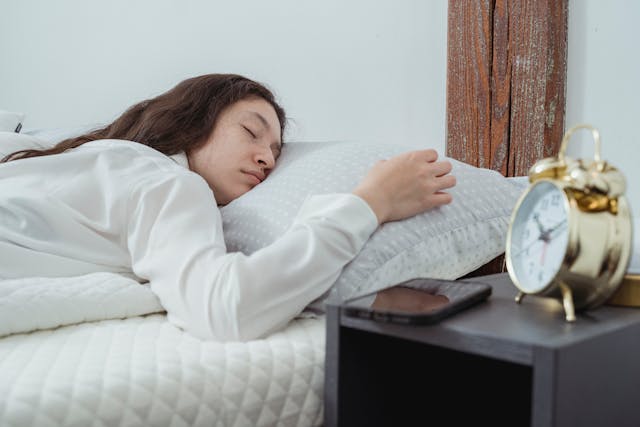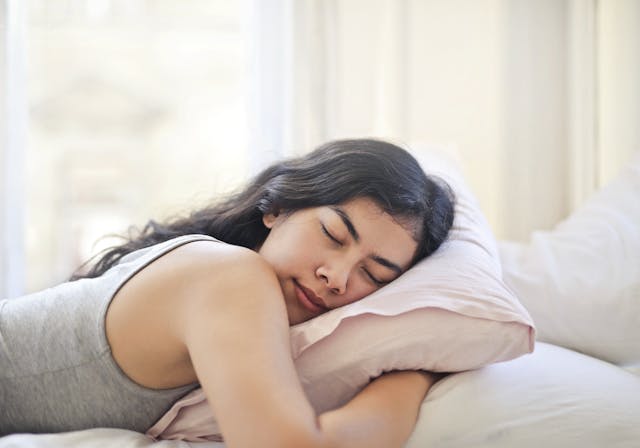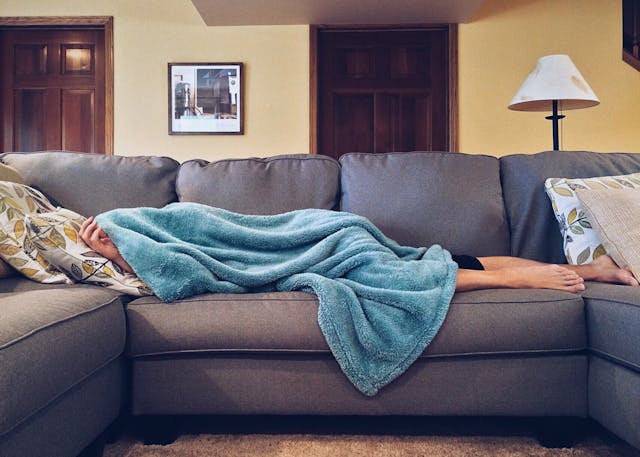10 Simple Steps to Better Sleep Recommended by Health Experts
Introduction: In today’s fast-paced world, getting quality sleep can be a challenge for many. However, prioritizing good sleep is crucial for overall health and well-being. Health experts emphasize the importance of establishing healthy sleep habits to ensure restful nights and productive days. Here are 10 simple steps to Better Sleep recommended by health experts to…
Introduction:
In today’s fast-paced world, getting quality sleep can be a challenge for many. However, prioritizing good sleep is crucial for overall health and well-being. Health experts emphasize the importance of establishing healthy sleep habits to ensure restful nights and productive days. Here are 10 simple steps to Better Sleep recommended by health experts to improve your sleep quality:
Stick to a Consistent Sleep Schedule:

Health experts advocate for maintaining a regular sleep-wake cycle, even on weekends. Going to bed and waking up at the same time every day helps regulate your body’s internal clock, making it easier to fall asleep and wake up refreshed.
Create a Relaxing Bedtime Routine:

Establishing a calming bedtime routine signal to your body that it’s time to wind down. This could include activities like reading a book, taking a warm bath, or practicing relaxation techniques such as deep breathing or meditation. Avoid stimulating activities or screens before bedtime, as they can interfere with your ability to fall asleep.
Optimize Your Sleep Environment:

Make sure your bedroom is conducive to sleep by creating a comfortable and relaxing atmosphere. Keep the room cool, dark, and quiet, and invest in a comfortable mattress and pillows that support healthy sleep posture. Limit noise and light disruptions, and consider using blackout curtains or white noise machines if necessary.
Limit Exposure to Screens Before Bed:

The blue light emitted by screens, such as smartphones, tablets, and computers, can interfere with your body’s natural sleep-wake cycle. Health experts recommend avoiding screens for at least an hour before bedtime. If you must use electronic devices, consider using blue light filters or wearing blue light-blocking glasses to minimize the impact on your sleep.
Watch Your Diet and Avoid Stimulants:

What you eat and drink can significantly affect your sleep quality. Health experts advise avoiding heavy meals, caffeine, and alcohol close to bedtime, as they can disrupt sleep patterns. Instead, opt for light, nutritious snacks if you’re hungry before bed, and drink caffeine-free beverages like herbal tea to promote relaxation.
Get Regular Exercise:

Regular physical activity has been shown to improve sleep quality and duration. Health experts recommend engaging in moderate exercise, such as walking, cycling, or yoga, most days of the week. However, avoid vigorous exercise close to bedtime, as it can stimulate your body and make it harder to fall asleep.
Manage Stress and Anxiety:

Stress and anxiety can significantly impact your ability to sleep well. Health experts suggest practicing stress-reduction techniques such as mindfulness, meditation, or progressive muscle relaxation to calm your mind and body before bedtime. Journaling or engaging in relaxing activities can also help alleviate stress and promote better sleep.
Limit Naps During the Day:

While short naps can be beneficial for some people, health experts recommend limiting them to 20-30 minutes and avoiding napping late in the day. Long or irregular naps can disrupt your sleep-wake cycle and make it harder to fall asleep at night. If you need to nap, do so earlier in the day and keep it brief.
Avoid Stimulating Activities Before Bed:

Engaging in stimulating activities before bed, such as working or discussing stressful topics, can make it harder to relax and fall asleep. Health experts advise winding down at least an hour before bedtime by engaging in calming activities that promote relaxation. This could include reading, listening to soothing music, or practicing gentle stretching exercises.
Seek Professional Help if Necessary:

If you consistently struggle with sleep despite implementing these tips, it may be beneficial to seek guidance from a healthcare professional. Sleep disorders such as insomnia, sleep apnea, or restless legs syndrome require specialized treatment. A healthcare provider can help diagnose any underlying issues and develop a personalized treatment plan to improve your sleep quality.
Conclusion:
Prioritizing good sleep is essential for overall health and well-being. By following these 10 simple steps recommended by health experts, you can establish healthy sleep habits and improve the quality of your rest. Remember to be consistent and patient, as it may take time to see significant improvements in your sleep patterns. With dedication and commitment, you can enjoy restful nights and wake up feeling refreshed and rejuvenated each day.
FAQs
Health experts emphasize the importance of maintaining a regular sleep-wake cycle to regulate the body’s internal clock. Consistency in bedtime and wake-up time helps improve sleep quality by ensuring a more natural and restful sleep pattern.
Establishing a calming bedtime routine signals to the body that it’s time to wind down and prepare for sleep. Activities like reading, taking a warm bath, or practicing relaxation techniques help reduce stress and promote relaxation, making it easier to fall asleep.
A comfortable and conducive sleep environment is essential for promoting restful sleep. Keeping the bedroom cool, dark, and quiet, investing in a comfortable mattress and pillows, and minimizing noise and light disruptions help create an ideal setting for quality sleep.
Blue light emitted by screens such as smartphones and computers can disrupt the body’s natural sleep-wake cycle by suppressing the production of melatonin, a hormone that regulates sleep. Health experts advise avoiding screens before bedtime to minimize the impact of blue light on sleep quality.
What you eat and drink can significantly impact your sleep quality. Avoiding heavy meals, caffeine, and alcohol close to bedtime, and opting for light, nutritious snacks and caffeine-free beverages promote relaxation and support better sleep.
Regular physical activity has been shown to improve sleep quality and duration. Engaging in moderate exercise such as walking, cycling, or yoga most days of the week helps promote relaxation and reduce stress, contributing to better sleep. However, it’s important to avoid vigorous exercise close to bedtime, as it can stimulate the body and interfere with sleep.

